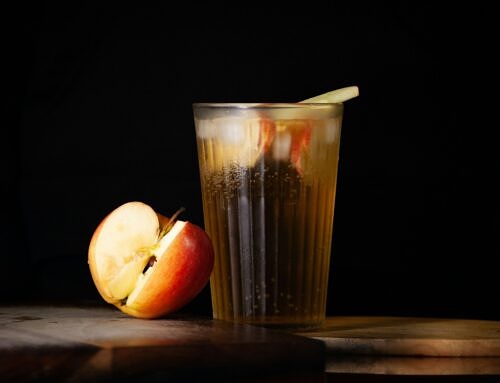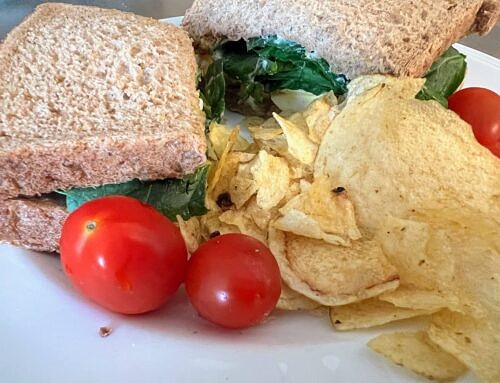
1) Hot Chocolate
Something to help keep Father Christmas warm on a cold night. Besides the less healthful sugar, hot chocolate contains cocoa powder which contains some beneficial nutrients such as antioxidants, iron, magnesium, selenium and zinc! You can make healthier versions than the standard commercial powders by simply mixing cocoa powder and milk together, but this has a much more bitter taste. There is a variety of recipes available online however that include spices such as cinnamon, ginger and nutmeg.
To help limit the sugars, take it easy with the drink toppings – marshmallows, chocolate sprinkles and mini-chocolate bars all add to the sugar count.
2) Milk
There is some debate about how good milk is for us. Unfortunately many of the study papers have been produced with vested interests – the dairy council, farming associations, or vegan groups, for example, have been involved in the research in some way. However, it is generally believed that milk provides us with calcium, protein, iodine and b vitamins. And, because of the electrolytes such as sodium and potassium in milk, it is considered a great way to rehydrate. It also has the amino acid leucine which helps repair and rebuild our muscles after exercise.
Dairy has been associated with some common health concerns, including eczema and asthma. In addition there are some concerns regarding the risks of a high dairy diet for men. Associations have been identified with prostate cancer, however the mechanism has not yet been identified to help us understand any link. To ensure you continue to have a healthful diet, please consult a suitably qualified professional (such as a nutritional therapist) before eliminating the food group from your diet, if you have health concerns.
If you are considering a non-dairy alternative for any reason, to get the best nutrient levels consider opting for non-organic. This is because organic products cannot be fortified. Check ingredients and nutritional labels for fortification with B vitamins, calcium and vitamin D. Some products now include iodine too which is particularly helpful for those not consuming dairy or white fish.
3) Alcohol
I’ll be publishing an article specifically looking at the nutritional effects of alcohol next week (keep an eye out on this blog page!). For now, let’s take a look at the benefits of a couple of celebratory spirits that may be left for Santa to enjoy (just not too much – he can’t be drunk in charge of a flying sleigh! And, we wouldn’t want our Christmas presents muddling up in a drunken stupor.)
First-up, brandy. Often falsely associated with Saint-Bernard rescue dogs, brandy is rich in antioxidants which can fight excess free radicals helping to manage inflammation in the body. Amongst the antioxidants is vitamin C, which is famous for its immune system support.
Whisky also contains antioxidants. One in particular, ellagic acid, is believed to have cancer fighting properties and to support brain function. You don’t have to drink whisky to benefit from this antioxidant though, pomegranates, berries and some nuts are also good sources. Another benefit of whisky is that it is thought to stimulate digestive enzymes helping to get the system moving – a positive for Santa given the number of mince pies he will be expected to eat tonight!
4) Mince Pies
A high-sugar festive treat for Santa. Stretching the health benefits significantly would be to acknowledge that they do contain dried fruit which contains some nutrients…. But, that really is stretching.
If however, you are happy to move slightly away from tradition and make your own, the British Heart Foundation have a recipe for slightly more healthful mince pies: https://www.bhf.org.uk/informationsupport/support/healthy-living/healthy-eating/recipe-finder/healthy-mince-pies. You do not add processed sugar (except a dusting of icing sugar, which you could leave out), so it avoids much of the sugar common to mincemeat recipes. The recipe also omits suet, and uses filo pastry instead of shortcrust to reduce the fat content. You could increase the nutritional content a little further by adding some flaked almonds on top instead of pastry.
5) Carrots
A healthful vegetable! However, these aren’t normally left for dear old Father Christmas; they are for his reindeer. Still, let’s take a quick look at the benefits of them from a human perspective.
Carrots are a carbohydrate rich vegetable. They contain high levels of beta-carotene, which we convert to vitamin A in our bodies. This is an antioxidant best associated with aiding night vision (handy when you are pulling a sleigh across the night sky!). We don’t use vitamin A directly for this, instead we use it to produce rhodopsin which is in the rods in our retinas. To get the best of the beta-carotene from carrots, they are actually better gently cooked (may be not for the reindeer, but good for our roast dinners).
Carrots also provide small amounts of vitamin K, potassium and fibre.
—
Whatever you leave our for Santa with your Christmas stockings, I hope he brings you all some lovely gifts.
Merry Christmas everybody!



